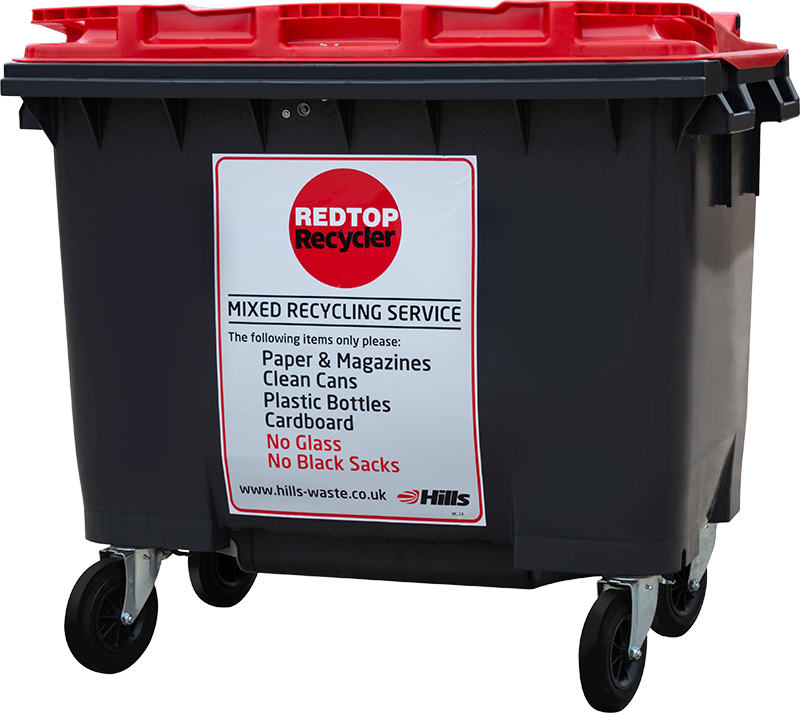
Food and Drink Waste Management
Flexible and reliable waste collections to support pubs, restaurants, cafes, clubs, and fast food businesses.
CREATE YOUR ONLINE QUOTE NOW
Switch to Hills Waste Solutions in under 10 minutes
- 97% service reliability
- 4,000 businesses in our community
Waste collections when you need them
A reliable and flexible refuse collections supplier, which is able to adapt to your business’s needs week in week out, season upon season, is important. The hospitality sector is a fast-paced environment with demanding customers. Whether this is a busy city or country pub, restaurant, or smaller café and specialist fast food outlet. Speed and efficiency are crucial for running the business whilst maintaining top-notch customer service.
The administration can be tricky enough, but seasonality (rain, sun, snow) and Christmas and New Year parties or other events, means you need people you can count on and trust.
Using an expert in food and waste management cuts down on administration and stress if you can rely on one company to remove all the different types of waste from your premises. Whether your business is a restaurant, café, pub, or specialist fast food outlet, Hills Waste Solutions makes it easy for your business.
With our proven track record of working with the hospitality and tourism sectors, Hills provides:
- Reliable and flexible collection services
- Competitive rates and a quality service
- Recycling of food waste - even in its packaging
- Glass and dry mixed recycling

Expert Advice
You’re likely to be producing Food, Glass and Dry Mixed Recyclables waste. So, if you’re a company that concerns itself with quality and process, Hills Waste are a team of experts that can provide the right waste management solution for you. We provide value for money minimal environmental impact, without compromising on quality.
By working closely with you, our flexible style will monitor your costs on an ongoing basis so that we can recommend proven ways to cut costs. We also report regularly against agreed targets so that you realise your savings on waste management costs. Hills Waste has decades of experience working in the hospitality sector and we understand that margins are tight and every cost matters.
We provide value for money whilst ensuring your operations are reliable and environmentally friendly.
Meals are wasted in the hospitality & catering industry
cookedbest.com/food-waste-facts
The food & hospitality sector loses £3.2 billion a year through food waste
guardiansofgrub.com
and other 'non-food' waste that's thrown away, could have been recycled.
wrap.org.uk
of food waste produced annually by the Hospitality & Food services
lordslibrary.parliament.uk/food-waste-in-the-uk/
Scheduling Waste Collections
Food and drink businesses do not operate at the regularity of other sectors, which is why our flexible and reliable service offers collections on a schedule suited to your business. For the majority of the time, regular scheduled collections will meet your needs. When seasonal fluctuations occur, simply amend your collection service to cope.
Health and Safety
Every business has a duty of care when it comes to good health and safety, and we’re one of the very few businesses in our sector to achieve the ISO treble, meaning we’re independently certified to ISO 14001, 45001 and 9001 standards. That means, health and safety, as well as compliance, are always built in at no extra cost to you.
Recycling and sustainability
At Hills Waste we work in partnership with you to determine the best method of collecting your waste, the types of waste you accumulate, and the volume of waste.
We can supply you with a full range of waste containers in a range of sizes to prevent any issues associated with poor waste storage. Find out more about our container ranges.
Managing your waste
At Hills Waste we work in partnership with you to determine the best method of collecting your waste based on type and the
volume you accumulate.
We can supply you with a full range of waste containers in a range of sizes to prevent any issues associated with poor waste storage. Find out more about our container range on our dedicated pages:
Food waste containers
.png)
for packaged and unpackaged kitchen and food waste, drink waste, and more.
FIND OUT MOREFor our general waste bins, we have a variety of sizes to match your business needs. They’re perfect for all types of lightweight, compactable, non-recyclable waste, such as packaging and black-bagged refuse.
Tips and tricks to minimise your waste
The EU Waste Framework governs advises that all businesses should reduce, reuse, recycle, and recover their waste. Only when we’ve exhausted these options, should we consider disposal. What can your business do?
REDUCE
REUSE
RECYCLE
RECOVER
No matter your waste management plan, you’re going to end up with surplus produce here and there – but there are so many great causes in the form of charities and food banks who’d be grateful for good-quality surplus produce.
Frequently asked questions
-
What is Commercial Food Waste?
Commercial food waste is waste generated by businesses and organisations, including food service providers and retailers. The type of food waste produced varies from business to business, for example, food preparation waste and left over food is commonly disposed of by restaurants whereas unsold or expired food is more likely to be disposed of by green grocers, food wholesalers and supermarkets.
-
Why should businesses recycle their food waste?
There are variety of valid reason why companies should recycle their waste;
- Saving Money
Separating your food waste from the rest of your general waste and using a reputable waste company such as Hills to collect and dispose of your food waste can reduce the likely hood of your business having overweight charges applied to general waste. - Environmental Benefits
By composting food waste instead of sending it to landfill, we can significantly reduce methane emissions. Methane is a harmful greenhouse gas and by recycling food waste we reduce the amount that ends up in landfill. Simpler recycling legislation now makes it illegal to send food waste to landfill. - Hygiene
Food waste isn't just untidy and smelly, it can also be dangerous. Our sturdy waste food bins will keep your waste hygienic, and our flexible collection service means we can take it away as often as your business needs.
- Saving Money
-
What happens to food waste after it is collected?
Once collected, food waste is taken to a local waste facility to be recycled using anaerobic digestion. This creates energy for the National Grid and fertiliser for the agriculture industry.
-
What are the main types of Commercial Food Waste?
The main types of commercial food waste include unsold or expired food products such as fruit and vegetables, dairy products, meat, and bakery products. It also includes food preparation waste such as eggshells and coffee grounds.
-
What types of food can you collect?
Hills Waste collects all food waste, such as uncooked and cooked foods, goods with packaging, including: kitchen waste, bread and bakery goods, cut fruit and vegetables, milk, cheese and dairy products, seafood products and waste food residues from the food industry.
-
What types of businesses can benefit from Commercial Food Waste Recycling?
The service of commercial food recycling is particularly suitable for canteens, restaurants, cafes, fast food retailers, supermarkets, food producers, schools, hospitals, offices and similar organisations that have to deal with larger or moderate levels of food residues and waste on a daily basis.
-
Why should Food Waste be separated?
Food waste should always be thrown into special food waste bins to be collected and treated correctly to make recycling easier and to avoid landfill, which with forthcoming legislation will make it illegal to send to landfill.
-
Can you collect packaged food?
Food is collected by Hills Waste regardless of how the food is packaged, and then it is sorted and taken to an Energy from Waste Facility and separated from the rest of the waste for it to be turned into energy which then goes back into the National Grid.
-
Food Waste Facts and Statistics
In the UK and worldwide food waste is a serious problem. For example, according to a report from WRAP they estimate that roughly 9.5 million tonnes of food is wasted in the UK a year (source). This has led the production and manufacturing industry to come up with various plans and schemes designed to combat this behaviour. Some of these schemes include things such as The Courtauld Commitment which was designed to reduce food waste by 50 percent by 2030 by educating people and making the system more efficient.
-
What is Drink Waste?
Drink waste includes any packaging and containers that hold beverages such as plastic bottles, cans, and glass. Businesses, including restaurants and supermarkets, that generate this type of waste must dispose of it in an appropriate and responsible manner.
-
How can Drink Waste be disposed of?
Glass, plastic bottles and cans are 100% recyclable and can be recycled and must be placed in the correct container so it can be collected by authorised waste carriers such as Hills Waste and taken to specialised processing facilities to be turned back into products or aggregates.
-
How much glass waste is generated by the commercial food and drink industry?
Restaurants, pubs and bars dispose of more than 200,000 tonnes of glass materials per year which will take several years to degrade. At Hills Waste we ensure that your business recycles glass waste effectively by recycling it into various products.
Want to know more?
We’re experienced, local experts who understand the unique demands of waste management in the Hospitality and Tourism sector. Contact our friendly professional team today to find out how we can help you meet your waste disposal and recycling challenges.
.png)
